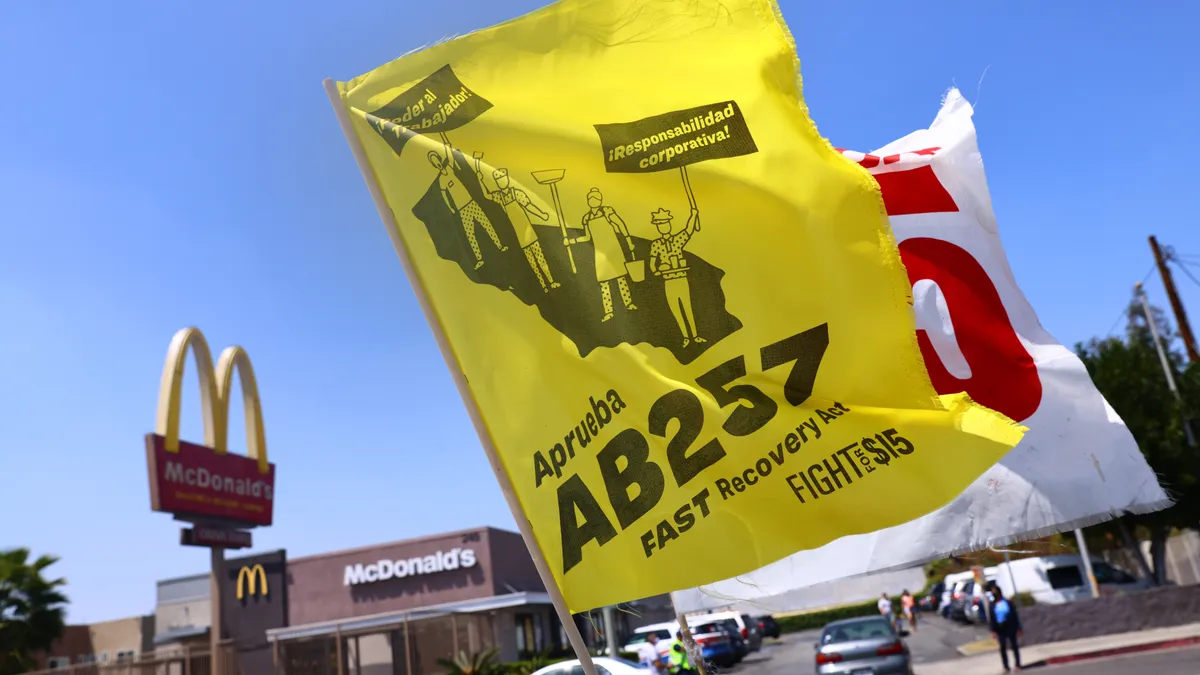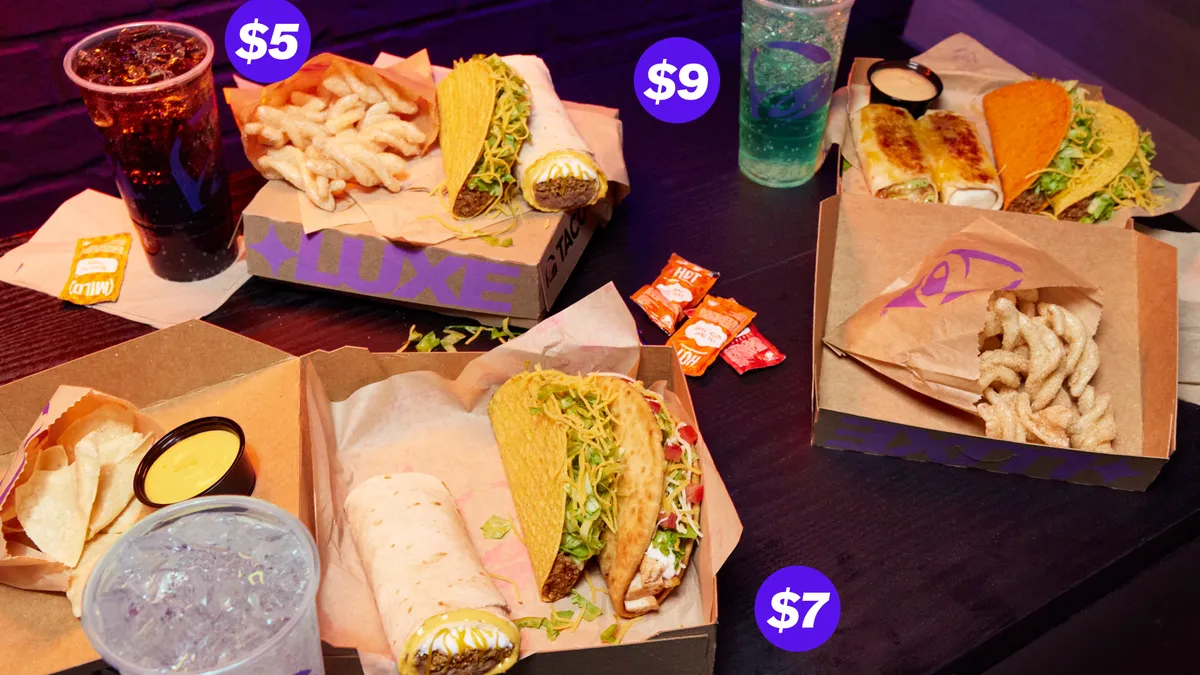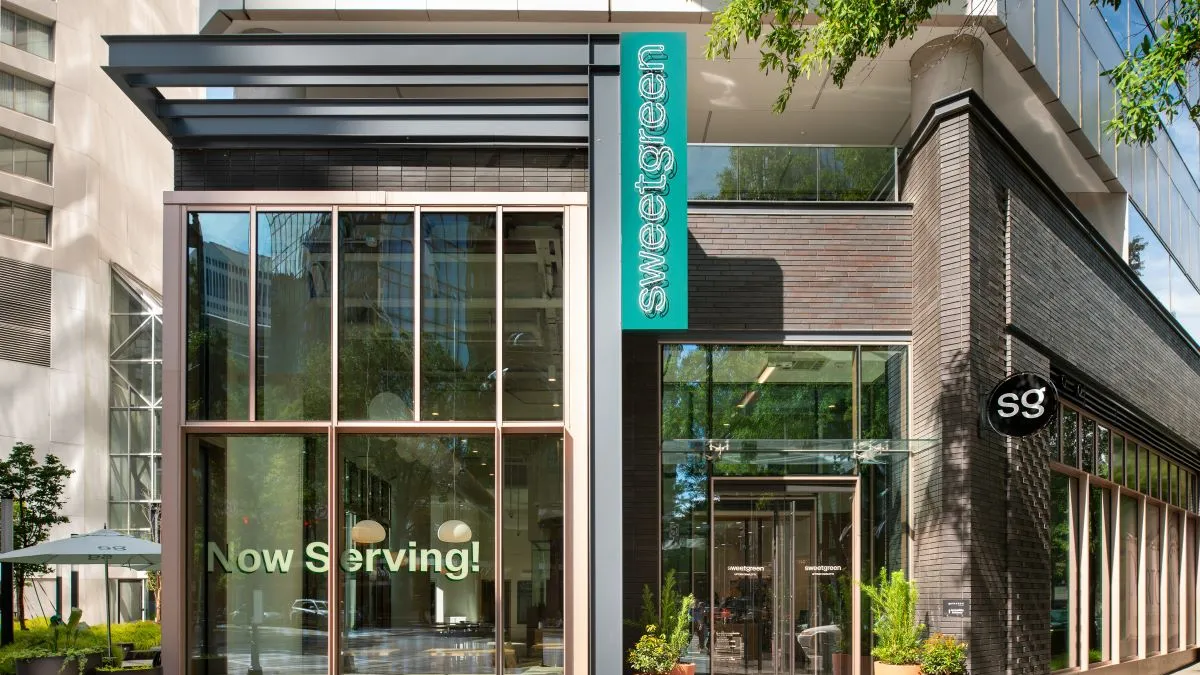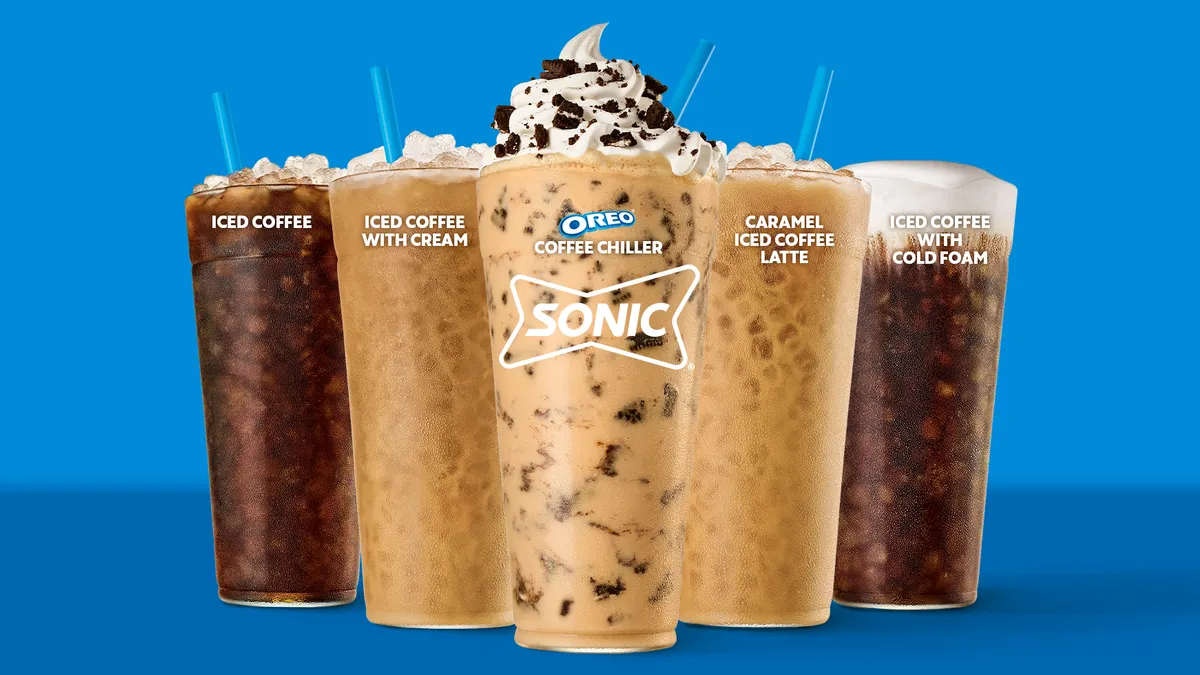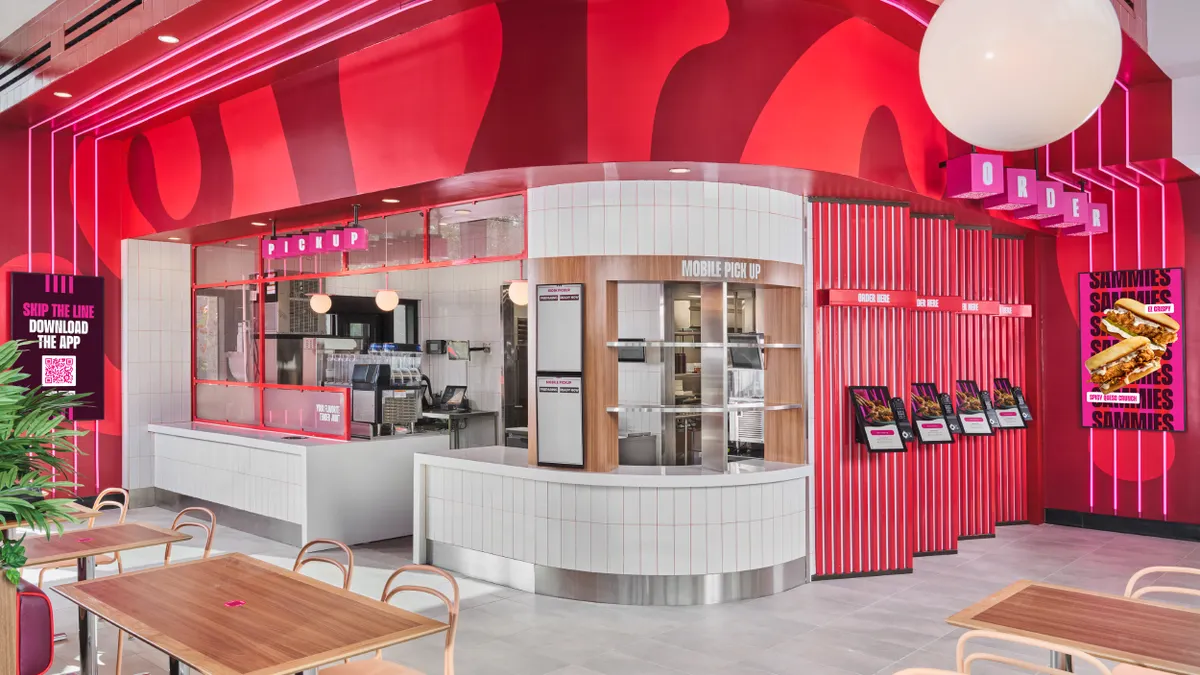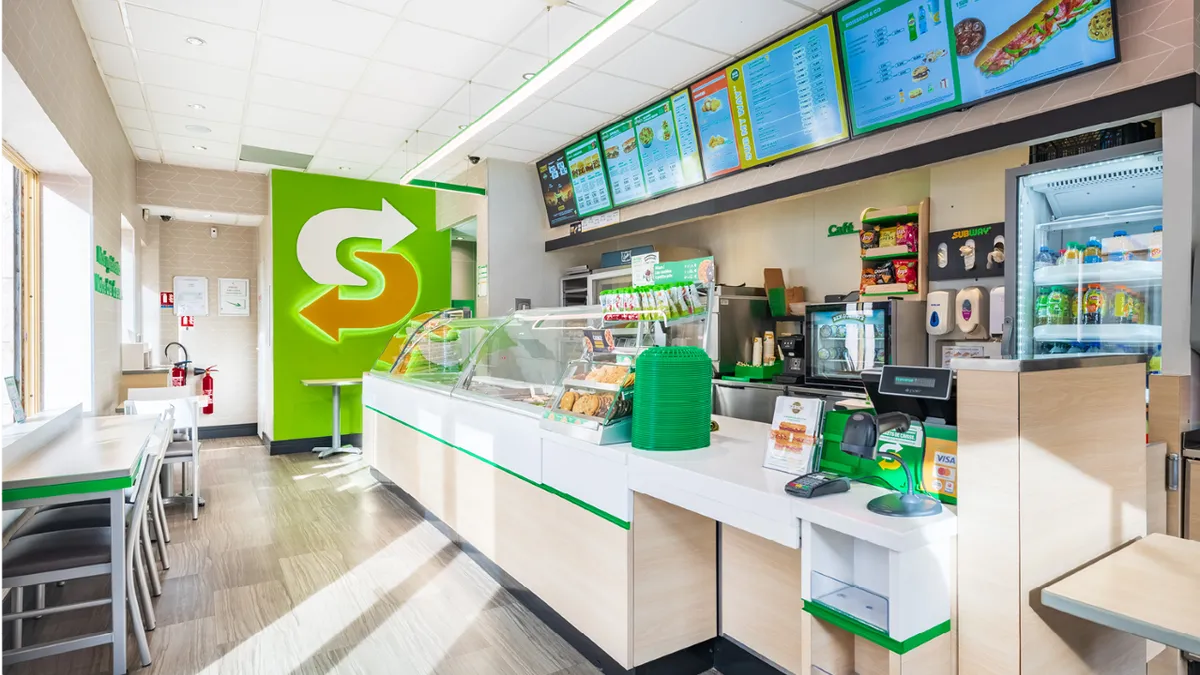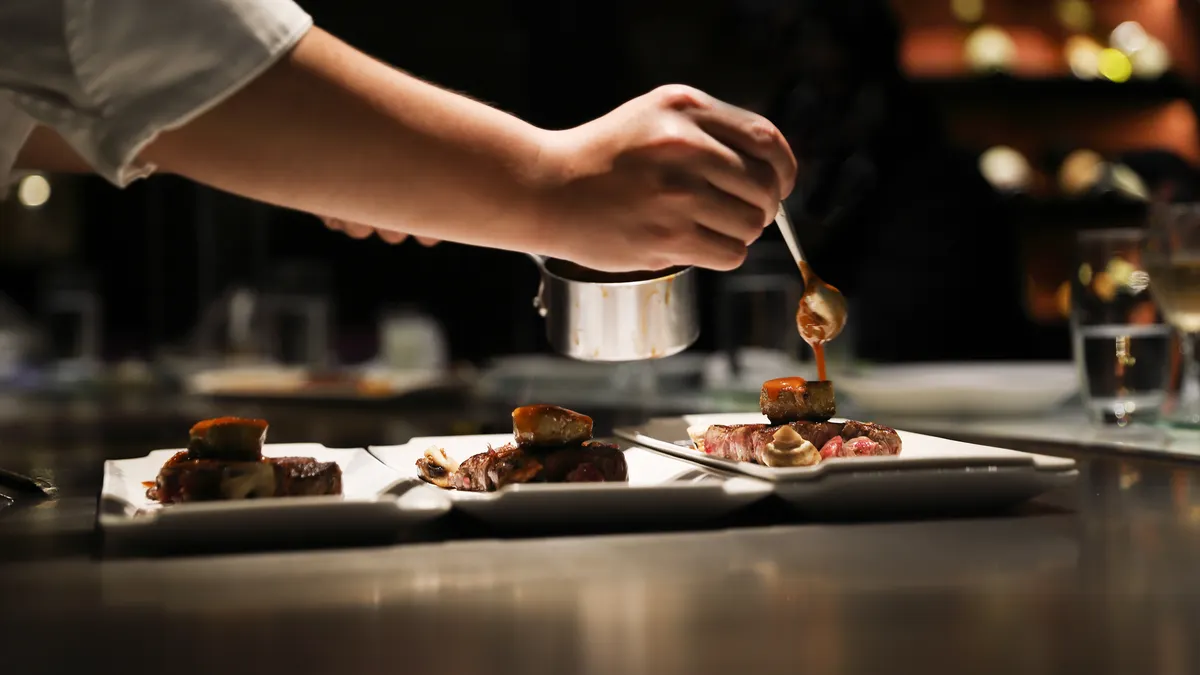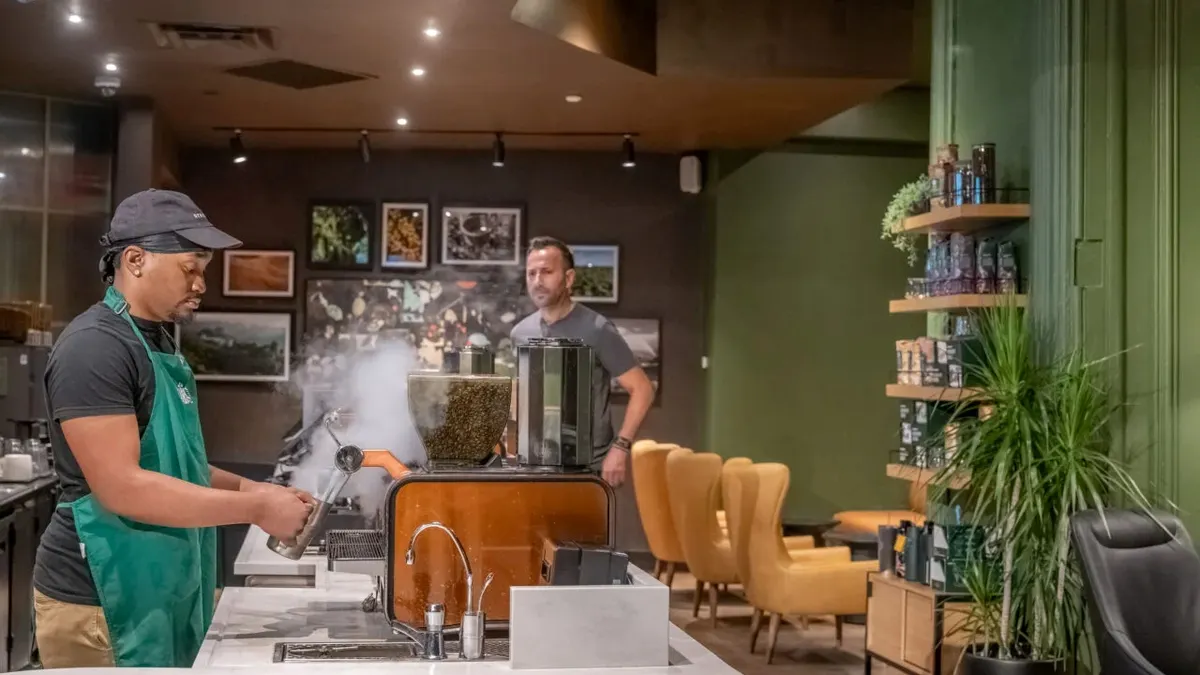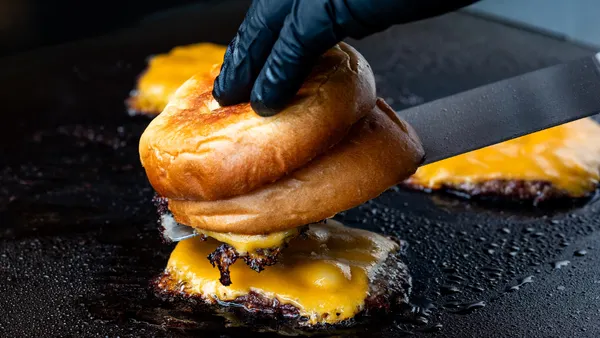Restaurant brands ranging from QSRs to fine dining establishments are preparing for the impact California’s impending $20 fast food minimum wage may have on the restaurant labor market. At the ICR Conference in Florida earlier this month, executives spoke about the likely changes chains and franchisees will undertake as wages rise in the country’s largest restaurant market.
For some restaurants, future-proofing includes menu price hikes and operational changes to shave costs. Chipotle said on its most recent earnings call that the law will add $74 million to its total wage bill and that it will raise prices in the high single digits to preserve margins, for example. But some labor-light brands and restaurant robotics firms view AB 1228 as an opportunity. McDonald’s recently said it views the new law as a chance to take share from competitors that aren’t well capitalized.
At ICR, restaurant leadership shared their AB 1228 response plans, and predicted who the winners and losers of this policy change will be.
Brands and franchisees will raise prices and look to value
“Operators in California are going to need to take price,” Andrew Wiederhorn, chairman of the board at Fat Brands, said. Those price hikes “need to be consistent with operators maintaining traditional margins,” he said.
Fat is also promoting a particular approach to pricing for its franchisees, Wiederhorn said. The company is looking for ways to preserve customer loyalty and traffic while raising prices on most items.
“You’ve got to come up with some mix of products where you can offer value, where you have a lower food cost,” Wiederhorn said. “You don't need to take as much price if you can serve a bigger portion that can be shared or hold your price constant on certain value items.”
Wiederhorn suggested that operators can change their promotional emphasis, for example promoting cheese pizzas versus pizzas topped with more expensive proteins, to attract price-sensitive consumers.
Fat’s franchisees are generally paying wages close to the coming $20 minimum in California, Wiederhorn said, but the wage increase could lead to a $0.50 to $1.00 price jump for core menu items like burgers, which he said was likely a 10% increase.
Chains across the industry are likely to raise wages to remain competitive with California’s standards, putting pressure on operators’ labor strategies and driving up menu prices — a dynamic that automated kitchen equipment company Miso Robotics sees as an opportunity.
“QSR restaurants are going to automate the worst parts of working in a commercial kitchen in order to make the economics make sense,” Rich Hull, Miso’s CEO, said during a presentation at ICR. “You can take that worker, and you can move them to a higher value position, perhaps the front-of-house where you can justify paying that higher minimum wage.”
El Pollo Loco’s restaurant base is heavily concentrated in California, and the QSR brand anticipates a twofold approach to AB 1228: the brand will raise prices in the mid-single digits and it will undertake operational changes to ease labor costs.
“To help mitigate labor we are rolling kiosks out,” Ira Fils, CFO of El Pollo Loco, said. “We are simplifying our salsa-making procedures, and we are installing dish machines and some of our restaurants.” The brand, interim-CEO Maria Hollandsworth said, has also halved the types of regular salsa workers are expected to prep and is looking at further efficiencies in labor processes.
The impacts are uneven across brands and segments
Larger brands with more purchasing power are likely to be insulated from some of the pressure to raise pricing because of their ability to negotiate with and look for advantageous suppliers, Wiederhorn said. The scale of systems like Fat Brands, which has 2,300 units worldwide, makes it easier for it to economize through deals with suppliers and means the company has greater ability to invest in technological solutions.
Larger franchisees will likewise be better positioned to weather the labor price changes. Jack in the Box CFO Brian Scott said the passage of AB 1228 hasn’t impacted the company’s efforts to build its franchising base or to refranchise Del Taco units.
“The operators that are already in California, they know how to navigate these types of changes,” Scott said. “For them, having more scale is better.”
Even then, the impacts will be felt disparately across segments and across brands.
GJ Hart, Red Robin’s CEO, said that wage growth in QSRs is likely to bleed over into full-service restaurants, and that brands are likely to take price, but precise actions aren’t yet certain.
“There's creep in terms of what's going to happen with the minimum wage,” Hart said. “We're watching what others are doing very closely.”
Fogo de Chão CEO Barry McGowan said the brands that have the most to fear from rising labor costs are those that haven’t seriously invested in employee experience, and that companies that are focused on being good employers have little to fear.
“Everybody gets caught up on the labor law,” McGowan said. “How many times have we been here? The industry is still here.”
“Those that aren't reinvesting in their people, their culture, and their guest experience are the ones who are fading away. Those are the ones that are having problems,” McGowan said. “So our industry is going through a renaissance that's healthy. We're getting better.”
McGowan said brands concerned about the rising cost of labor should focus instead on preserving or expanding traffic, especially as rising prices may deter customers.
“Even if you have to eat margin during a cycle, that's what you do for traffic,” McGowan said. “The biggest [metric] about our industry is traffic, it's not same-store sales.”
Portillo’s, with its high unit volumes, is comparatively unconcerned with the potential impact of a $20 minimum wage.
“We don't pay minimum wage in any state. There are states where we're paying $4 or $5 an hour above what that state's minimum wage is,” Portillo’s CEO Michael Osanloo said. “We don't pay minimum wage because I don't want minimum wage people.”
Jeff Uttz, CFO of Kura Sushi, predicted that AB 1228 will strengthen the value proposition of Kura Sushi, whose back-of-house employees are tipped.
“We don’t believe we’re going to see any issues related to labor,” Uttz said. The sushi brand, which relies on conveyor belts to serve, anticipates that AB 1228 will make QSRs and fast casuals more expensive and thus make brands with labor-light models, like Kura, more competitive.



